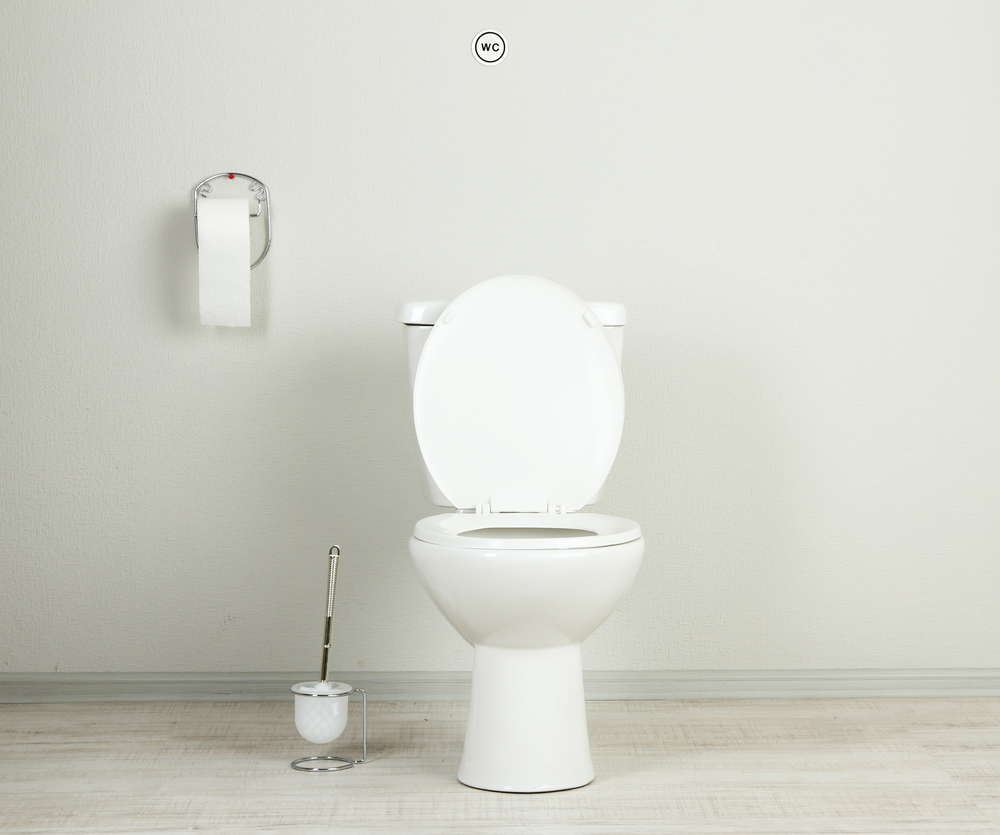The Poop on Pooping: 5 Misconceptions Explained


Everyone does it. And many have developed a set of rituals and beliefs, some false, about the act of clearing one's bowels.
You might think that you know your stuff about poop, but misconceptions are common. Here is the truth behind five common misconceptions about defecating.
Misconception No. 1: Daily pooping is normal, and optimal.
The U.S. Army once encouraged its soldiers to perform three daily S's, two of which are shower and shave. This might imply that the first S, which stands for, uh, defecating, is a healthy daily routine one should strive for. But it is latrine efficiency, not long-term health, that's the Army's top priority.
Gastroenterologists quip that anything in the range of three times daily to three times weekly is normal, assuming the feces isn't too loose or hard. That is, regularity doesn't mean defecation should happen daily, but rather, that it should happen consistently. Frequency only becomes a concern when it changes suddenly, in either direction.
Constipation is caused by many factors, such as poor diet, dehydration, lack of exercise, jet lag or diet change while traveling, pregnancy and certain medications. Getting a good rest, drinking more water, exercising and eating a high-fiber diet of grains, fruits and vegetables should remedy constipation. If not, a paucity of bowel movements could point to (or lead to) a serious medical condition.
Diarrhea, or loose bowel movements, also is caused by many factors, most commonly by viruses, bacteria or an allergic reaction. Consistently loose bowel movements could be a sign of a chronic disease, such as irritable bowel syndrome. [5 Things Your Poop Says About Your Health]
Get the world’s most fascinating discoveries delivered straight to your inbox.
Misconception No. 2: It's supposed to smell bad.
Poo may not smell like roses, but it shouldn't smell like a rotting swamp of roses, either. A truly awful-smelling bowel movement — something admittedly hard to quantify in writing — can be either a sign of an infection, or something more serious, such as Crohn's disease, celiac disease or ulcerative colitis.
Giardiasis, an infection of Giardia parasites, is one well-known cause of horrible-smelling poop. If you experience bad odor over a prolonged period when defecating, you should see a doctor.
Perhaps surprising, passing gas from morning through the night is normal and healthy, the natural byproduct of your gut bacteria digesting your food. But as with poop, consistently foul gas could be a sign of something serious.
Misconception No. 3: The colon needs a good flushing.
Colon cleansing is one of the worst things you can do for your colon and long-term health — despite its enduring popularity. At its most benign, colon cleansing is a waste of time and money. Recent studies, however, have revealed how truly detrimental the practice is.
In short, you cannot wash away the bad things without washing away the good things; but worse, there are no bad things to wash away. Those toxins and pounds of festering, impacted fecal matter? They don't exist.
With each "cleansing," you are flushing away beneficial bacteria and electrolytes. Nearly 1,000 species of bacteria reside in the colon and aid in the final stages of digestion, including water absorption, and the fermentation of fibers and vitamin absorption, particularly vitamins K, B1, B2, B7, and B12.
Emergency rooms regularly see patients who have hurt themselves by cleansing. Common side effects are dehydration, rectal perforations, air emboli, blood infections and a loss of the ability to control the muscles of the bowels.
There are no toxins in the colon that get absorbed in the blood to cause disease. This theory of autointoxication was proven incorrect more than 100 years ago. These toxins now reside in a virtual form on the Internet on hydrotherapy websites promoting, well, nothing but crap.
Misconception No. 4: Taking your time is healthy.
The myth that it's healthy to sit on the toilet for a prolonged time pervades popular culture. The author Henry Miller dedicated a chapter in his 1952 tome "The Books in My Life" to reading on the toilet. Even an episode of the sitcom "Seinfeld" featured the character George being forced to buy an expensive picture book that he took into the bookstore's restroom to read.
And magazines are found so often in people's personal bathrooms that one might think it is natural, or even beneficial, to relax on the toilet. Not so, for two reasons.
Studies have shown a connection between toilet reading and hemorrhoids. The theory, dating back to a 1974 study, is that prolonged toilet sitting during which the anus is relaxed, followed by repeated straining, irritates the tissues surrounding the rectum that help control bowel movements, called anal cushions. This can lead to hemorrhoids, or inflamed veins in this area.
A study published in The Lancet in 1989 reported that patients with hemorrhoids were more than twice likely to read on the toilet. A study from 1995 in the journal Colon & Rectum found that 40 percent of patients with benign anorectal disease read on the toilet. And a 2009 study published in Neurogastroenterology & Motility also found hemorrhoids sufferers more likely to be toilet readers.
What's not clear, however, is whether prolonged toilet sitting causes hemorrhoids, or is the result of this. Nevertheless, doctors recommend more dietary fiber, not more sitting, to facilitate bulkier and faster bowel movements.
The second reason toilet reading is a problem is filth. Myriad studies reveal how reading material and smart phones get contaminated with fecal matter when used on the toilet. It's hard to wash an iPhone.
Misconception No. 5: More pooping leads to more weight loss
Seems like this one is aligned with the laws of physics: The more that comes out means the less you are carrying around. Alas, it isn't (quite) so.
Many people take laxatives or drink "dieter's tea" with the hope of pooping out more of those calories. The problem with this approach, though, is that calorie absorption takes place largely in the small intestine. Laxatives do their thing in the large intestine, or colon.
There is anecdotal evidence the Asians unload more feces on average per day than Westerners; and considering that most Asian countries have far lower obesity rates compared to most Western countries, you might start to think there's something to the pooping-away-fat idea.
But what we are witnessing is the effect of a high-fiber diet, in which insoluble fiber provides a feeling of satiety without contributing many calories. That fiber comes in whole grains, beans, vegetable and vegetable skins, seeds and nuts — features of an Asian diet. High-fiber foods pack fewer calories per pound compared to low-fiber foods, such as meat and processed foods — hallmarks of a Western diet.
Fiber promotes stool regularity and vacates the body with impressive efficiency.
Follow Christopher Wanjek @wanjekfor daily tweets on health and science with a humorous edge. Wanjek is the author of "Food at Work" and "Bad Medicine." His column, Bad Medicine, appears regularly on Live Science.

Christopher Wanjek is a Live Science contributor and a health and science writer. He is the author of three science books: Spacefarers (2020), Food at Work (2005) and Bad Medicine (2003). His "Food at Work" book and project, concerning workers' health, safety and productivity, was commissioned by the U.N.'s International Labor Organization. For Live Science, Christopher covers public health, nutrition and biology, and he has written extensively for The Washington Post and Sky & Telescope among others, as well as for the NASA Goddard Space Flight Center, where he was a senior writer. Christopher holds a Master of Health degree from Harvard School of Public Health and a degree in journalism from Temple University.


